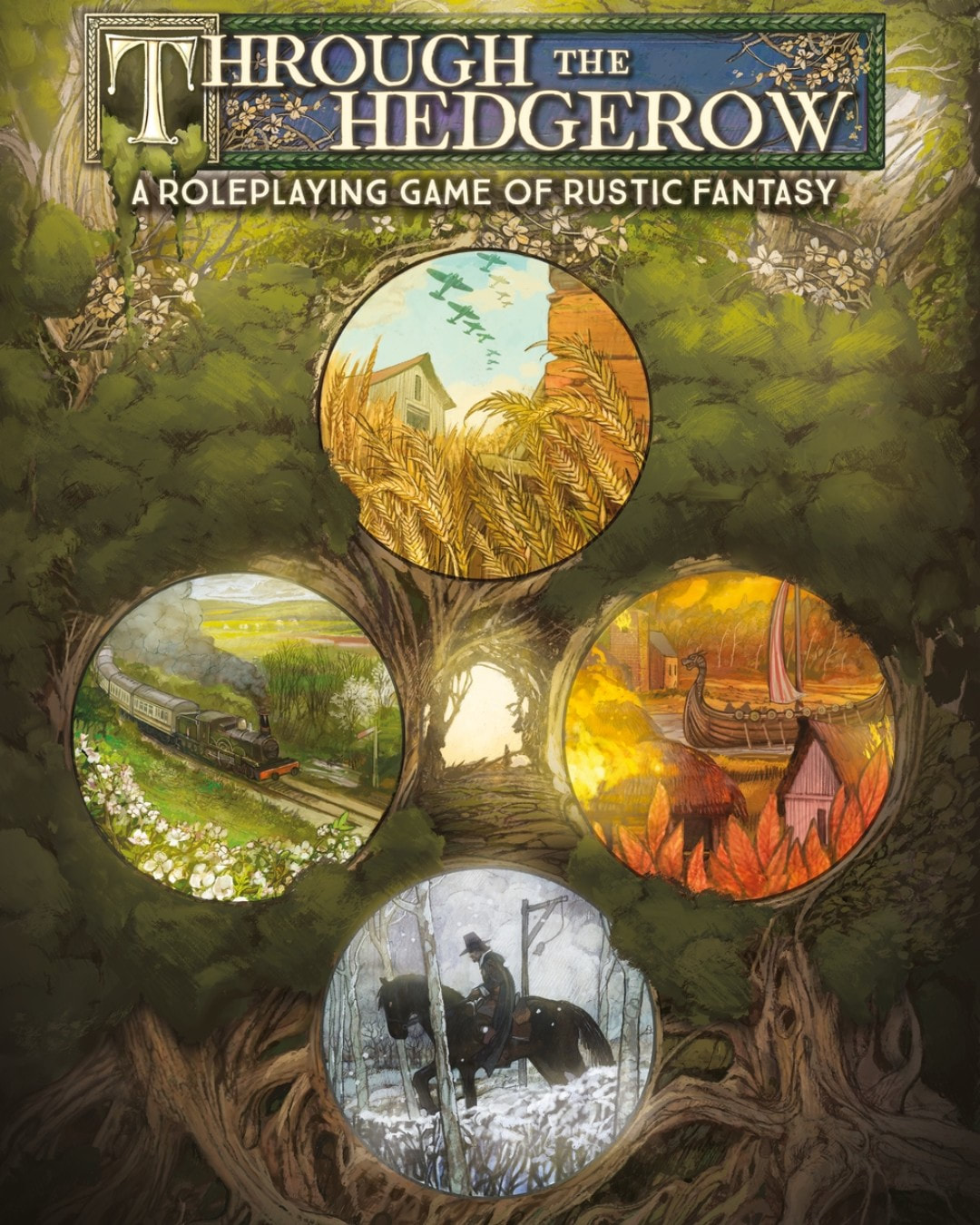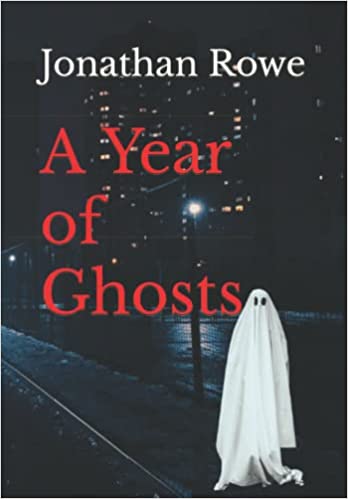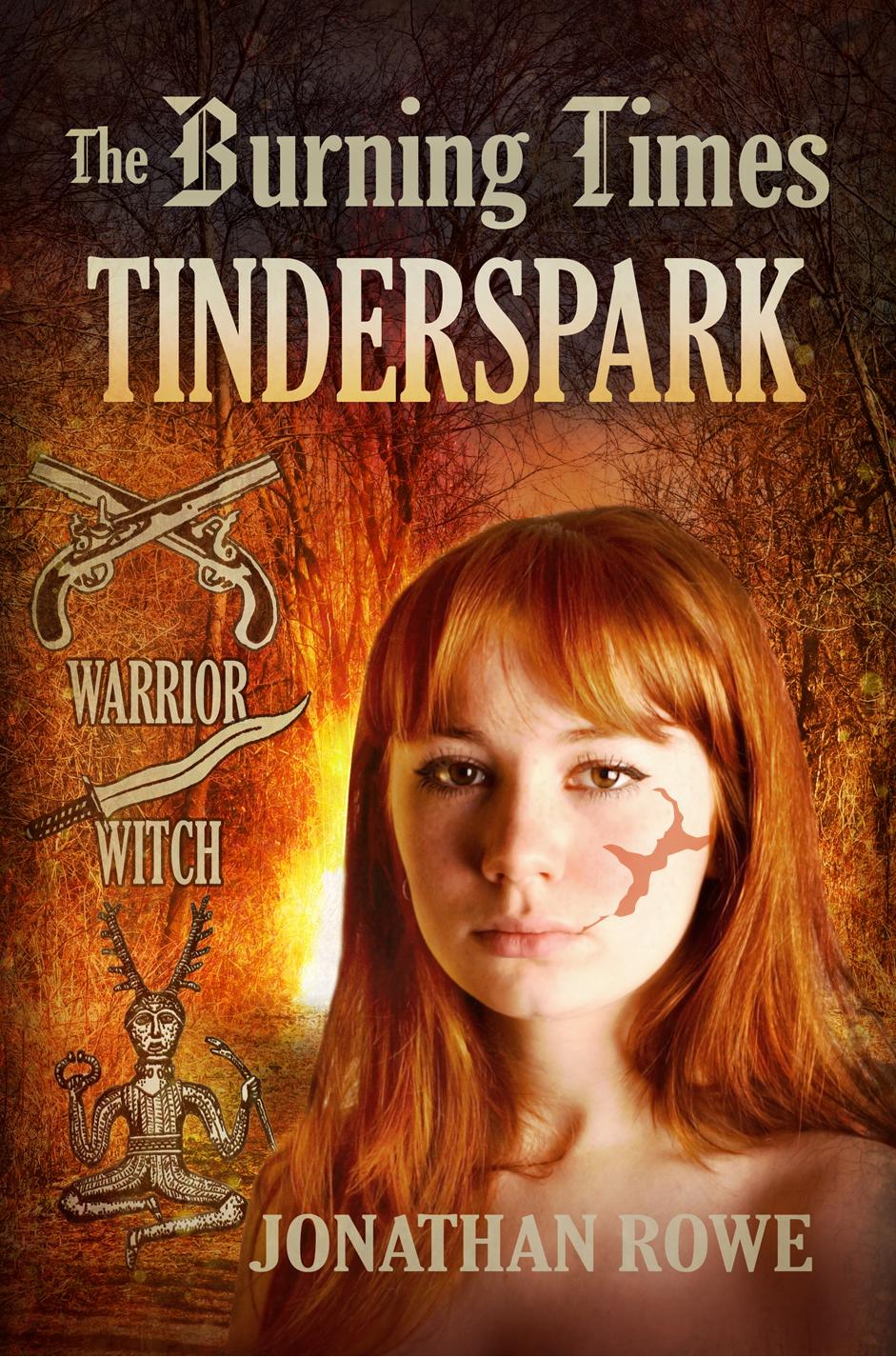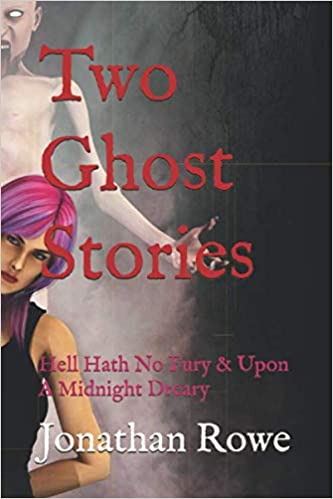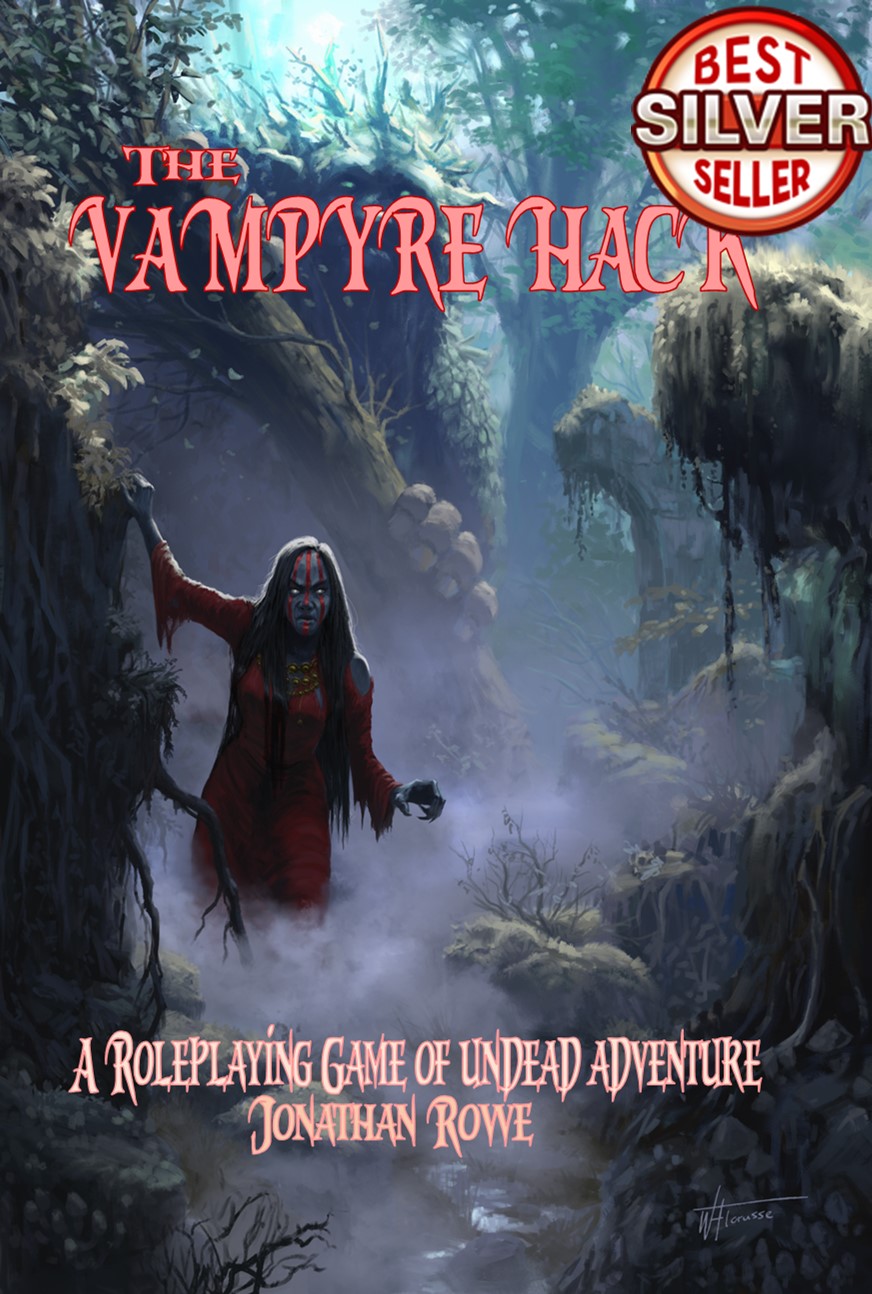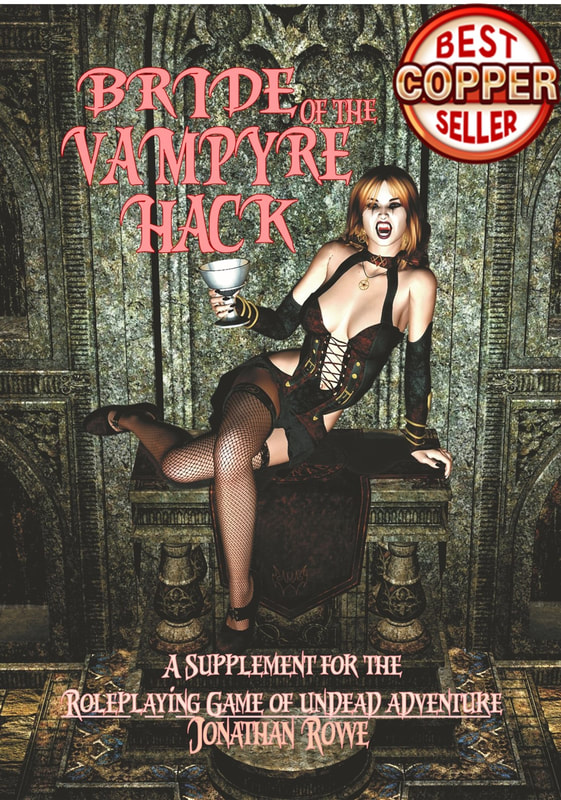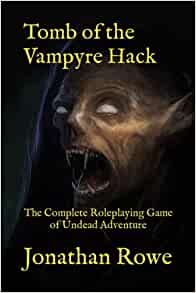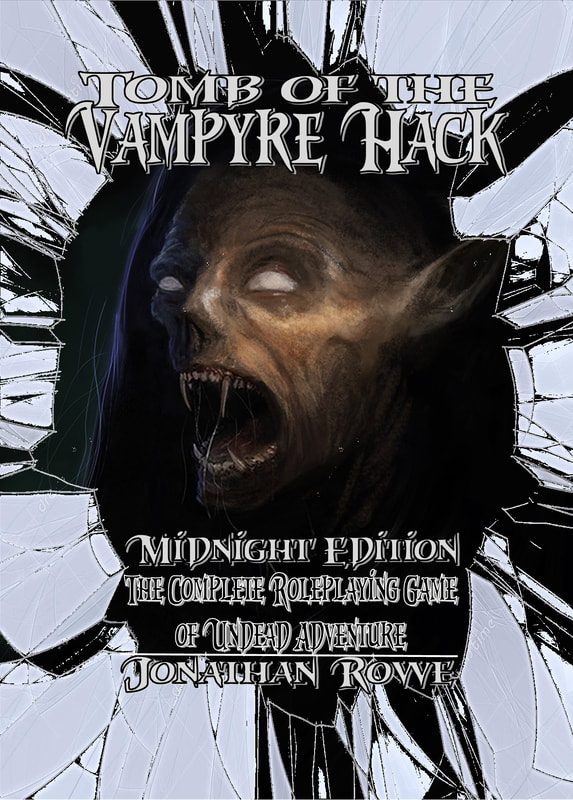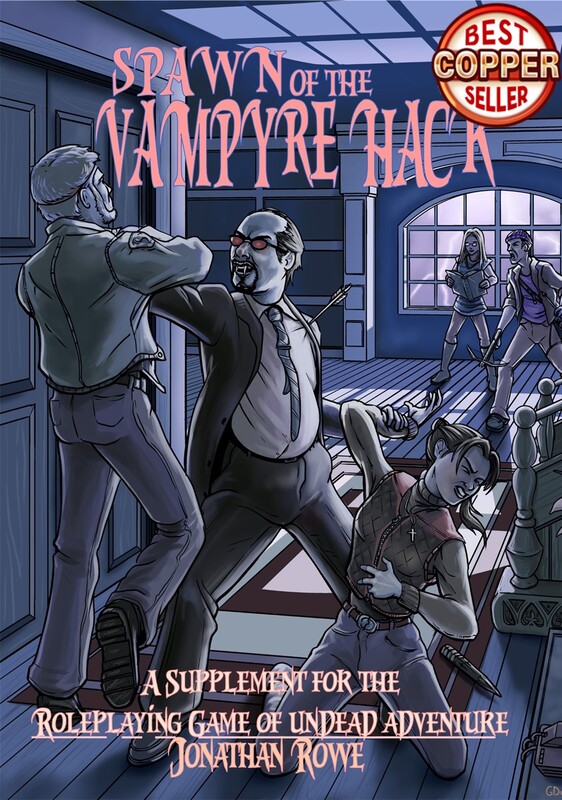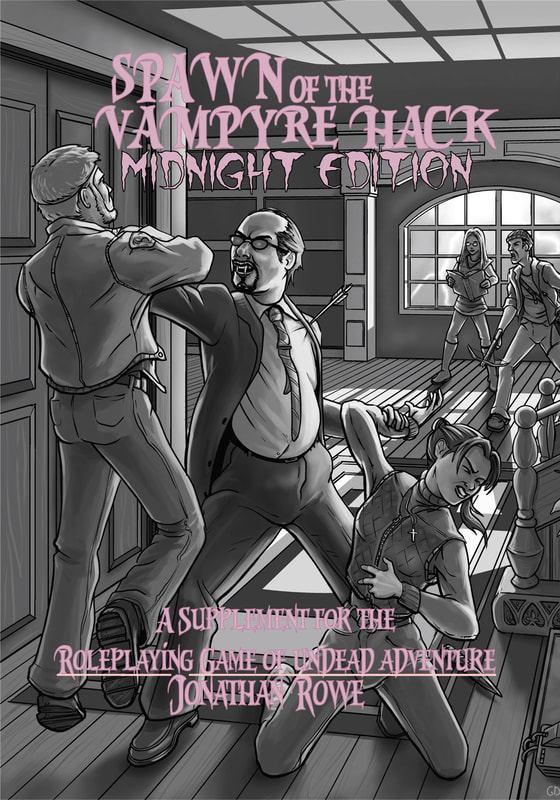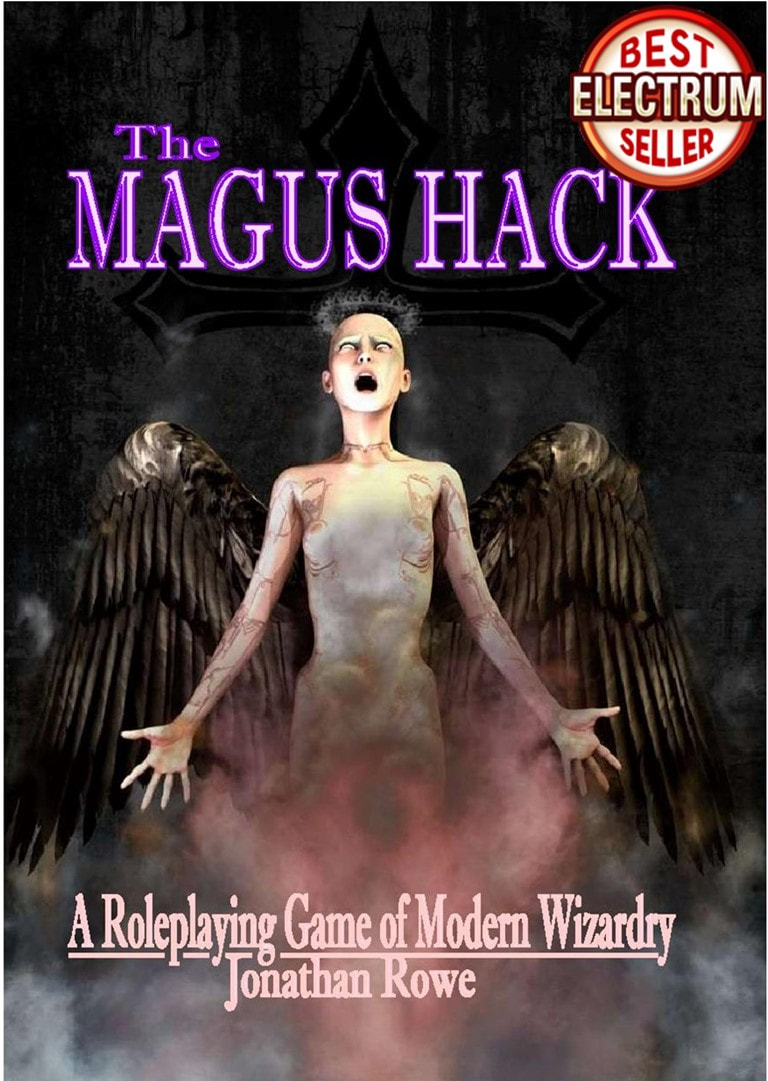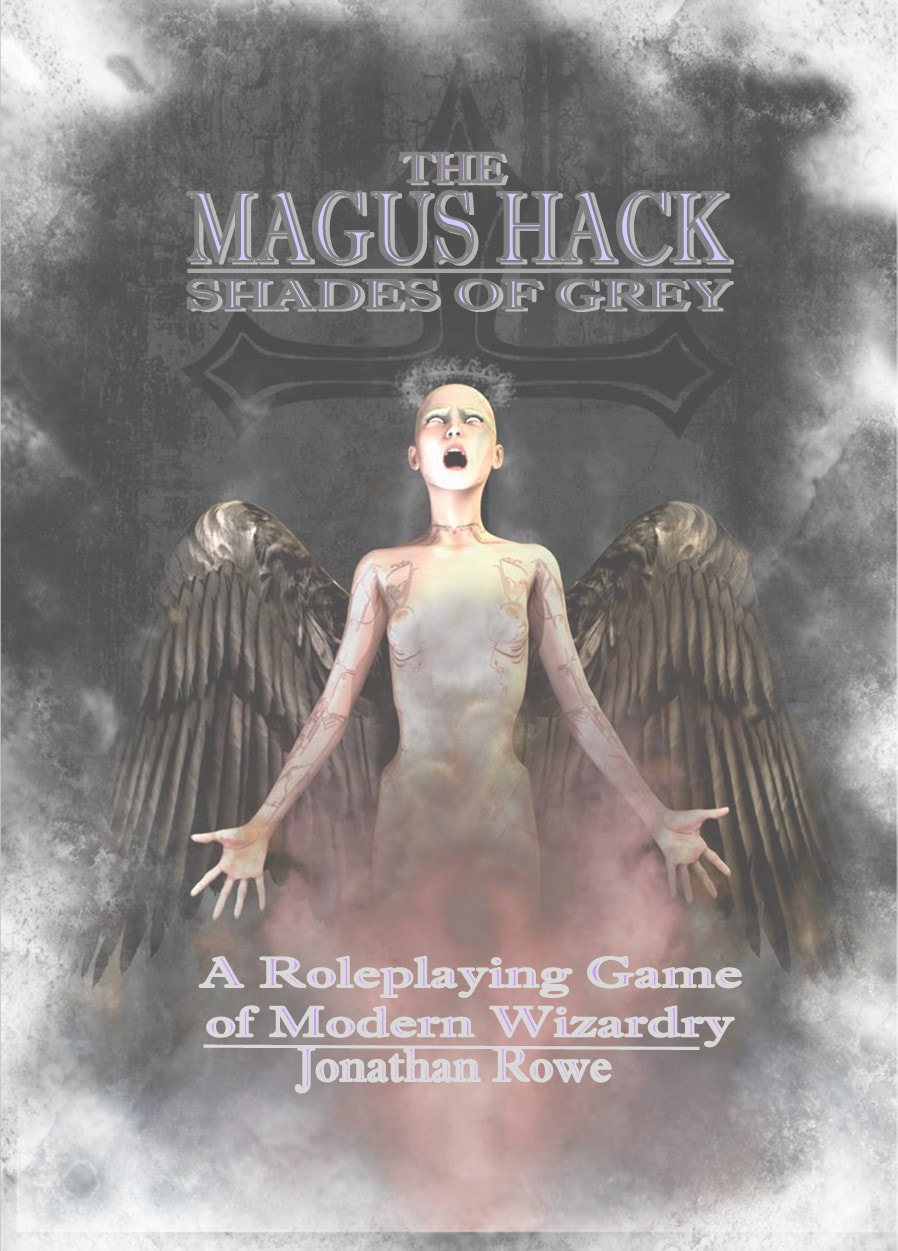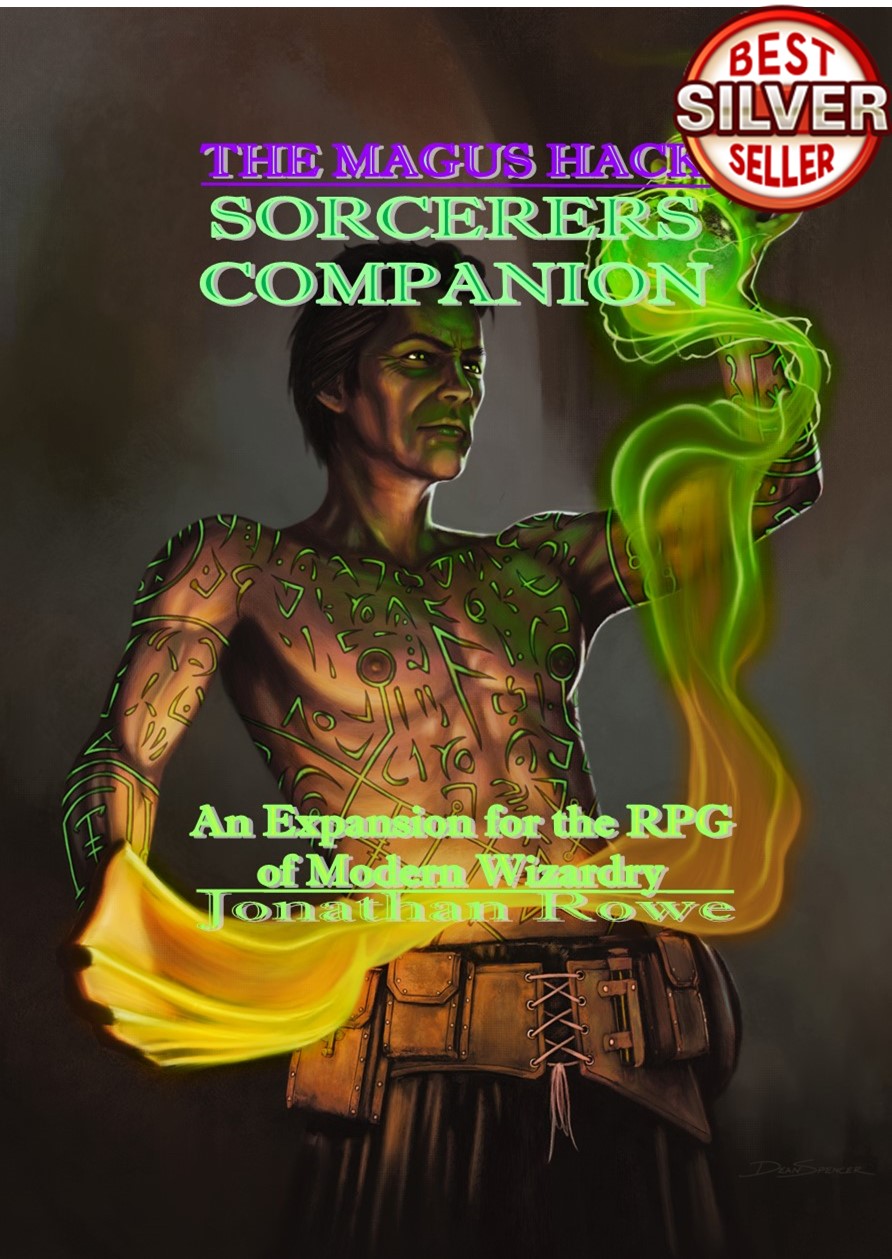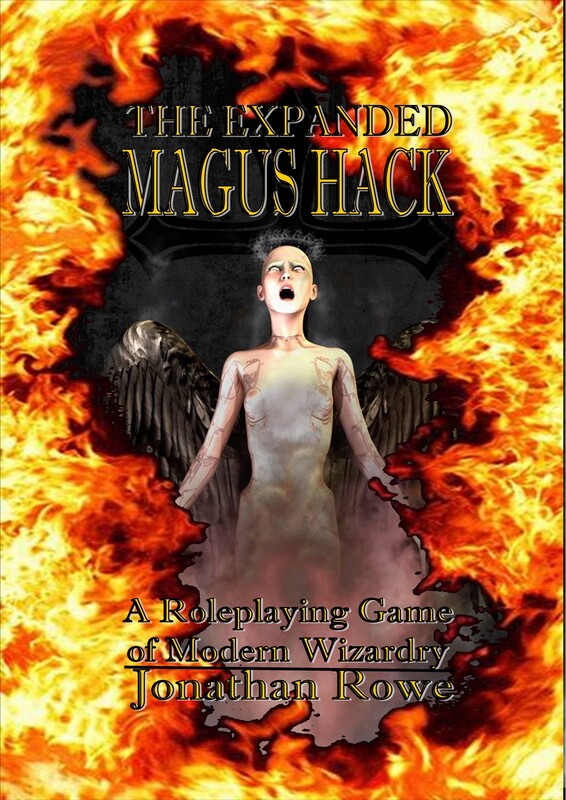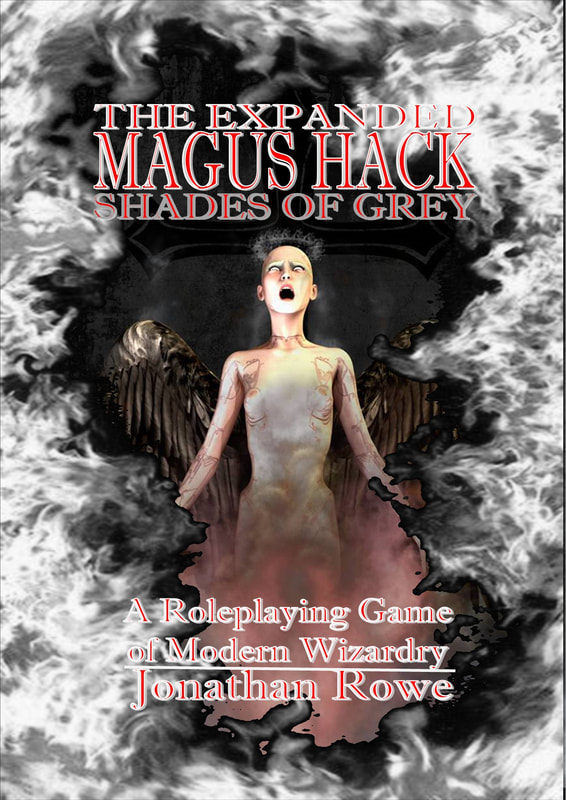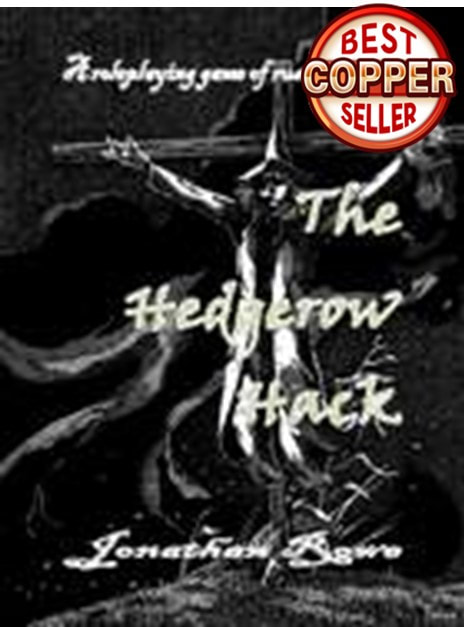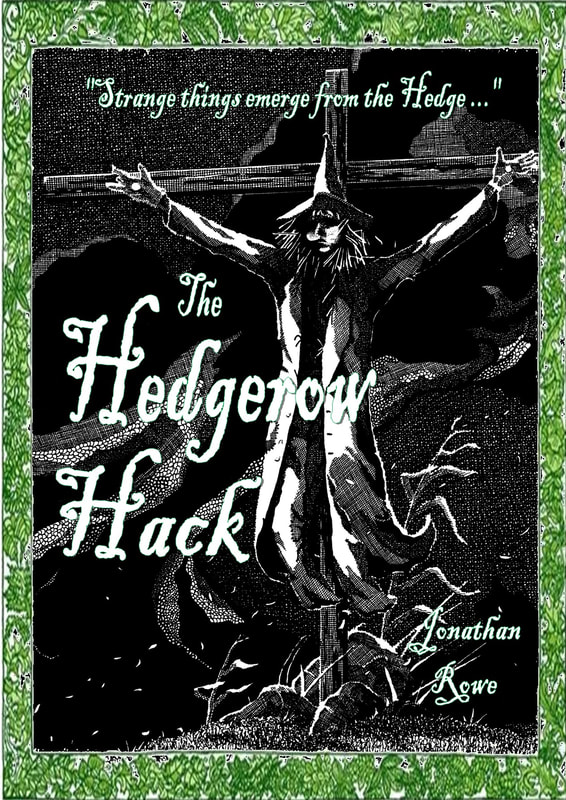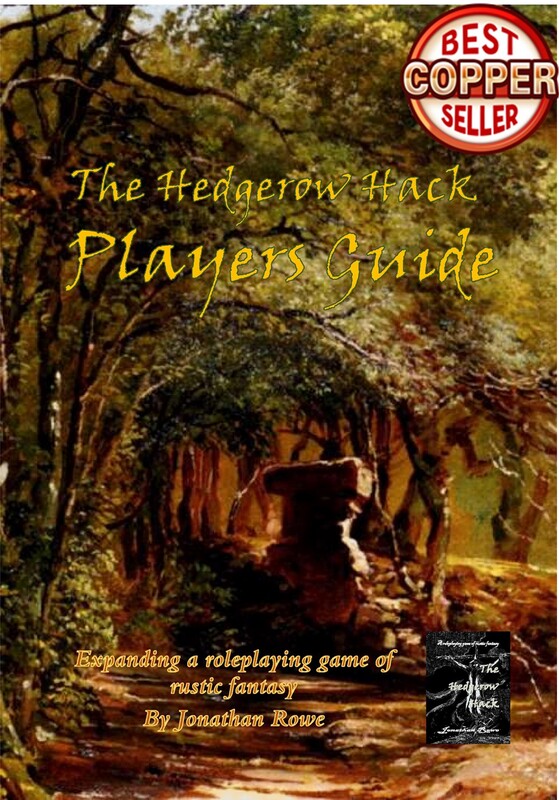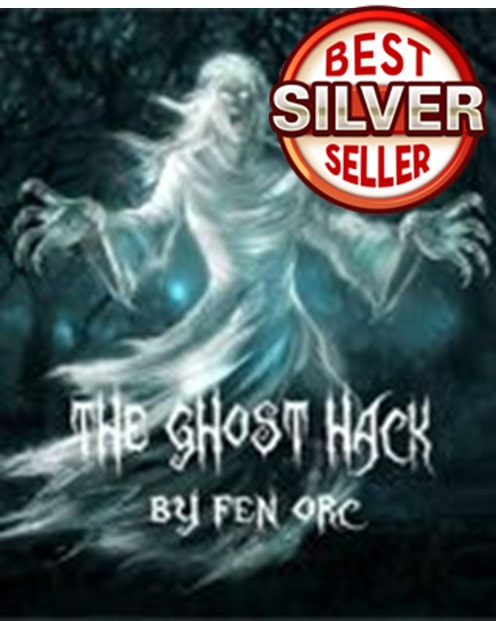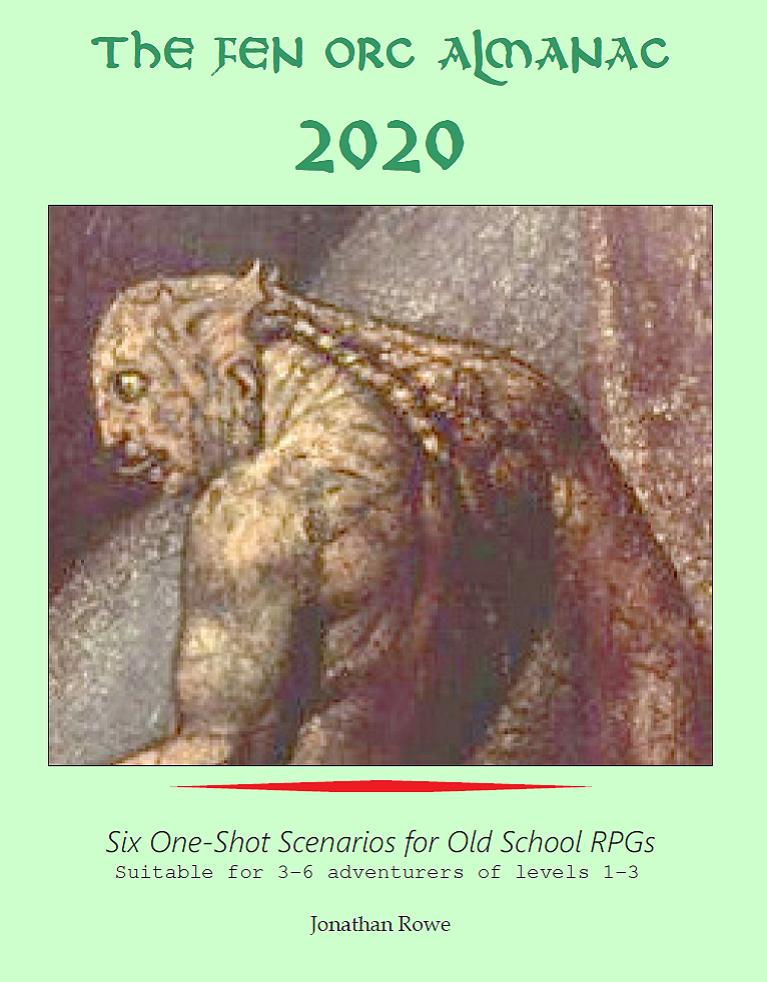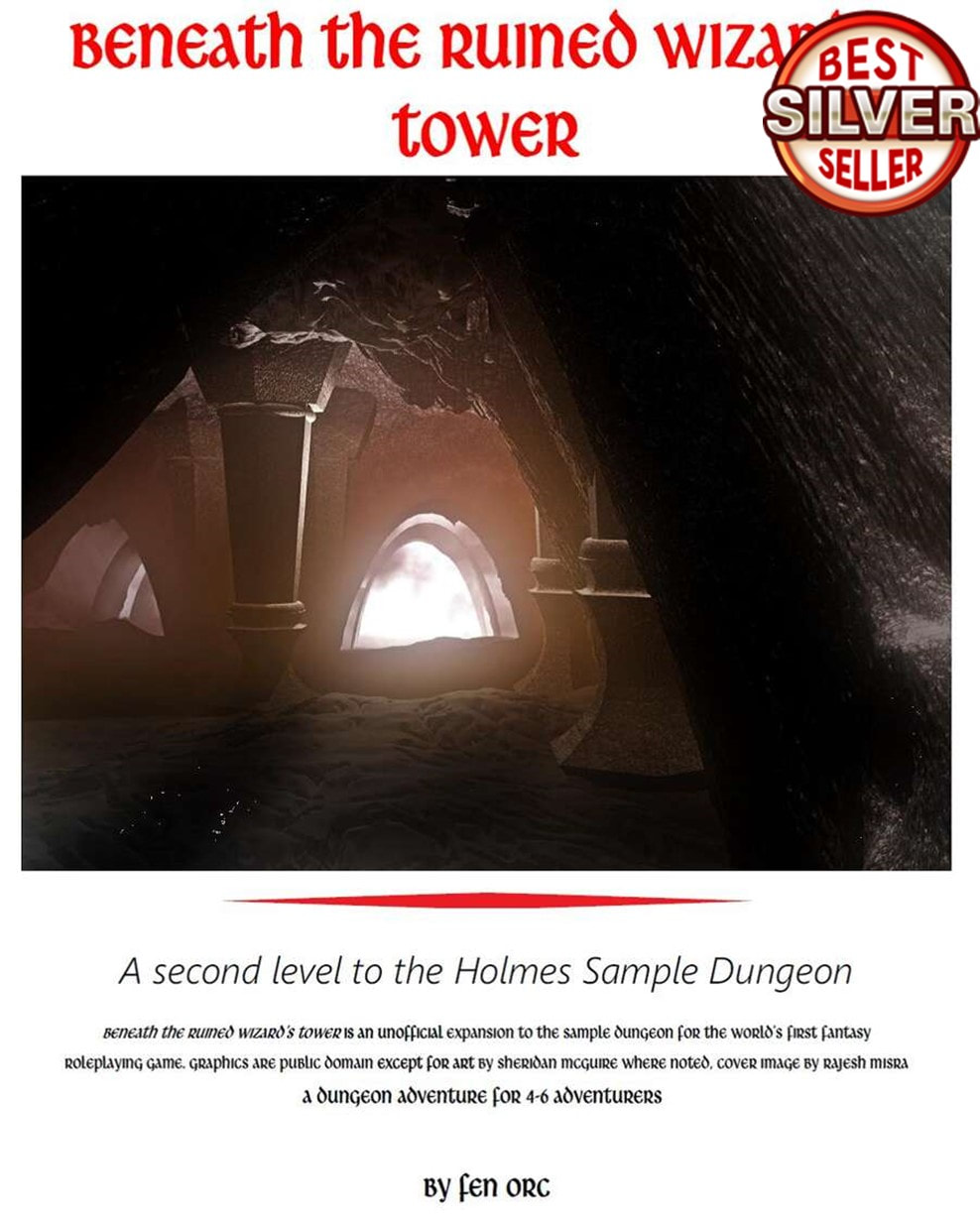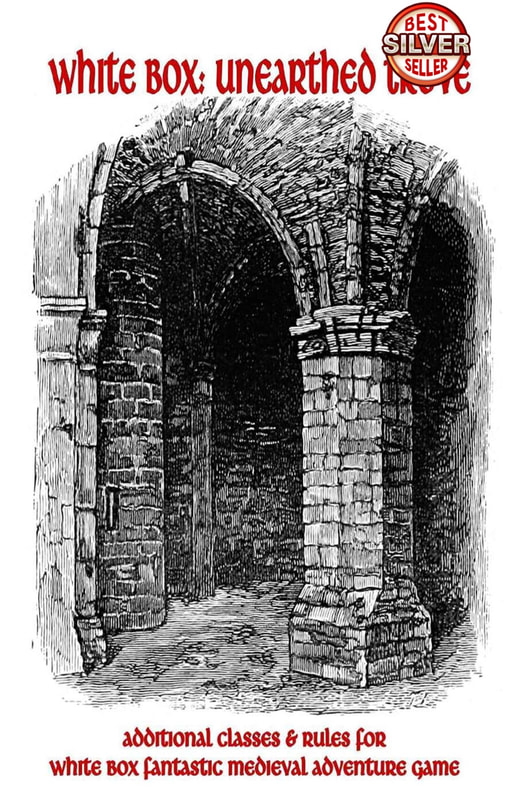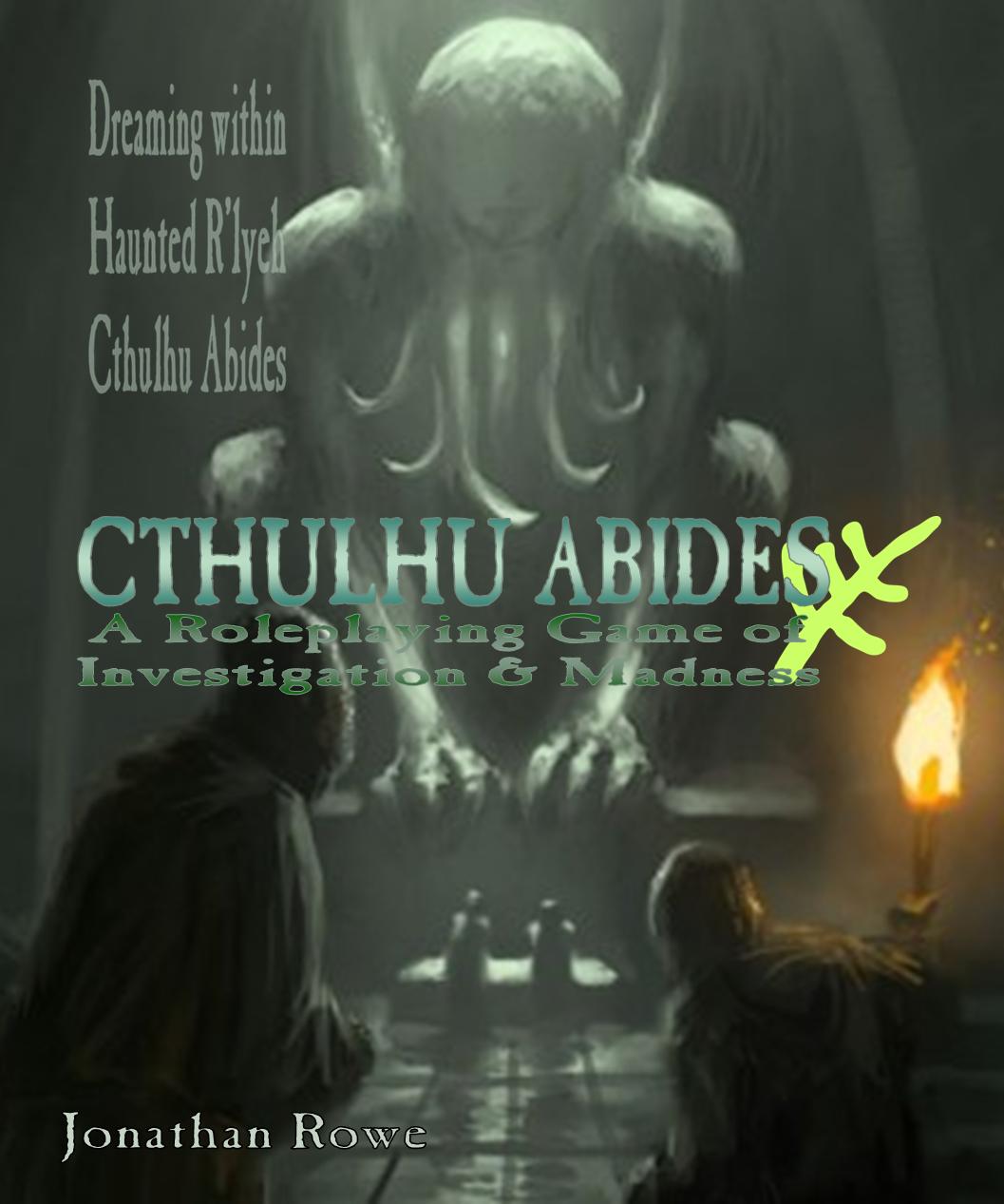Do not go gentle into that good night, In his astonishing, angry, heartbroken poem, Dylan Thomas urges us not to go gentle into the dark night of death. It makes a fine title for the new Ghost Hack expansion, which explores the Dark Night in depth but equips ghost PCs with the resources to go into it with very little gentleness about them. It's been a labour of love. All right, maybe not 'love' but certainly an obsessive sentiment that consumes my days and dominates my dreams and won't let me alone until it's been made real and I can hold it in my arms. Let's call it 'love.' The Ghost Hack was a jolly little project and I knocked the first draft out in a weekend. OK, yes, I had a template to work from in David Black's The Black Hack and specifically Matthew Skail's The Blood Hack. This took ages..... Three Hacks: The Ghost Hack, grandaddy fantasy Black Hack and Matthew Skail's vampy Blood Hack New Character Classes The Ghost Hack introduced four 'Trades' (character classes) that aimed to be accessible. Banshees influence emotions, Poltergeists move things around, Revenants appear to the living. Nightmanes are a bit odd, as underworld-explorers, but you soon realise they're a cross between rangers and clerics. All plain sailing. Do Not Go Gentle offers six more Trades and they get quite esoteric. Doppelgangers are simple enough: they're shapechangers who can heal easily and turn their ghostly bodies into weapons. Helgaunts are ghostly paladins who specialise in killing Wights but have forgotten what it's like to be human. Then it gets odder. Anubians are ghostly psychotherapists who have an intense relationship with a NPC client that they are forced to betray eventually. Their 'Dark Counsel' is an amazing benefit but it puts you in their power forever after. Fleshweavers and Morpheans are sorcerers - the Fleshweavers control Mortal Coils while the Morpheans build dream-realms. Grimliches are Wights - self-aware and rational, but still creatures of spite dedicated to making somebody's life miserable. These guys fill out the world of Ghost Hack. Nightmanes now have warrior-companions in their forays into Hades. Anubians function as courtiers and viziers and have the power to extort potent NPCs. The spells of the Fleshweavers can reassign Mortal Coils, carve them up, burn them out or change them. Their ultimate accomplishment is the 'Liber Mortis' - a book where the intimate story of your life functions as if it were your Mortal Coil, a book which can then be sold to the highest bidder. Morpheans bring an element of wonder and magical creativity into play while Grimliches, well, no one likes them much. Great pulp art from Nuelow (Copyright ©2015 Steve Miller) to set the tone Cults and worse The expansion is a chance to explore what it's like being a ghost and what the dead get up to. The pressing problem for most ghosts is that their Mortal Coil is always shrinking while their Grave Die is always growing. Eventually, they end up starved of Soul energy and turn into a depraved Wight. The Misericordium is here to solve that problem. This shadowy organisation recruits ghosts to work as clerks in abandoned offices, writing their life stories in vast ledgers, supervised by stern overseers. As you write, your Mortal Coil is transferred into the ledger and then your Grave Die fades away too. You end up a faceless cipher serving the Misericordium, having sold away your personality and your past. But at least you got paid! Players are unlikely to be tempted by the Misericordium's Kafka-esque dystopia, but what about the Temple of the Dragon Soul? Or the Church of St Thomas Repudiatus? Or the Entropic Research Unit? These 'cults' also promise to take away your Grave Die and/or your Mortal Coil - or in the case of the Entropic Research Unit, boost your Grave Die through the roof so you can make peace with your inner-Wight - but offer attractive benefits along the way. Martial arts, anyone? These organisations - known as Heresiarchs - are likely to be the villains in a Ghost Hack campaign, but I suggest different ways of playing them as well-intentioned or outright dastardly, depending on who the Referee wants them to be working for. Friends you haven't met yet... NPCs and antagonists get a makeover, replacing the cryptic entries in The Ghost Hack. Demons, of course, of both the Judeo-Christian and mind-shattering Lovecraftian sort. Necromancers too, from frustrated Goths through noble shamans to narcissistic liches. Ghost Hunters and Psychics get several pages, looking at the hunters' technological toys and the psychics' extrasensory powers. A very nasty monster, the Skinreaver, can pose a particular problem for ghosts if it every develops psychic powers (by snacking on a psychic brain, since you asked). Ghosts in this game are hurt by iron and repelled by salt, so both substances get an essay and more detailed rules on how exactly they affect ghosts in play. Watch out for Psychics with nail-guns is all I can say... If someone's got one of these and a bunch of those (wrought-iron, hand-forged) you need to make them into your friend real quick And Wights, of course. The Ghost Hack vaguely alluded to different types and the scenario Upon a Midnight Dreary clarified those: now we get the full explanation. Harrow-Wights are the things you turn into when you've been bashed to 0HP and you exhaust your Grave Die: off your go, screeching through Hades, homing in on your Mortal Coil to do hideous stuff to the people and things you love the most. Maybe, just maybe, a friendly Anubian can intervene and send you off instead to savage the Mortal Coil of one of his ex-clients. It sucks being the ex-client of an Anubian. Hel-Wights are the mindless, gibbering monsters that inhabit Hades. Why are there so many of them? I offer some disturbing hypotheses. Nether-Wights, now these are the arch-villains, the Ramsay Boltons and Professor Moriarties, of your campaign. They're ghosts who just Rotted away out of sheer badness. When they let lose on the mortal world, all hell breaks lose. Literally. Better hope they're not former-Fleshweavers, otherwise they'll latch onto your Mortal Coil and do unspeakable things to it. Welcome to Hades, population: growing Hades is a vast world - perhaps an entire universe - that ghosts can enter through Portals. The Ashen Path offers safe travel, better still if you can find one of the paved Necroducts that hint at some long-vanished Civilisation of the Dead that no one remembers. Off the Ashen Path, the Dread billows and swirls: freezing clouds of ectoplasm-shredding acid with nasty Wights capering inside it. Every now and again, the Dread rises and you had better hurry on to the nearest Fane or Tollbooth. Just your luck if it's run by the Misericordium and they make you work of your entrance fee at their awful ledgers! Precious Soulfire gets more consideration, as well as different types of Fanes and other realms in Hades: Pyrocrypts and Mausoleums, Infernos and Paradises, Fantasia dream-realms - and the great River Lethe that separates the Hades we know from the Tartarus we can only guess at. The great thing about Hades is that its filled with everything that was ever lost, sacrificed or violated. A group of ghosts can travel through the bombed out villages of WWI Flanders, pick over the ruins of Minoan temples, flee across the plague-pits of 14th century Europe and take shelter in the burning buildings of London's Great Fire. Soulfire needs to be mined and the only way to transport it is for ghosts to immolate themselves in it - and the only fuel to keep it burning is the Kindling made from the shredded ectoplasm of ghosts. It pays to have some mindless Echoes in tow because, hey, better them than you, right? I'm trying to convey Hades with elements of Steve Ditko's mystical landscapes in Doctor Strange and the purgatorial journey in Sam Mendes' 1917 (2019) More than a game, it's a setting Most ... Hack games are intentionally loosey-goosey rules that you can hang any scenario you like on. Do Not Go Gentle turns The Ghost Hack into something a bit more ambitious: a RPG with its own setting, tone and themes. It's still intentionally open-ended and sketchy, but it's a more sophisticated product now. The elephant in the room is classic '90s Storyteller game Wraith: the Oblivion. Obviously, Ghost Hack is a hommage to Wraith. But is it significantly different, or just 'Wraith-for-Dummies'? I don't want to dwell too much on levels-and-character-classes or distinctions like ghosts being harmed by salt and iron. What I like about Ghost Hack is open-endedness. Wraith has this big oppressive 'Empire of the Dead' bearing down on the lives of PC wraiths (or it did in the '90s; I think they overthrew it in an end-of-franchise apocalypse). It's got a detailed alternative history (as all World of Darkness games do) with real-world events corresponding to the rise and fall of wraith power blocs. I can't be bothered with that now, much though I adored it in my 20s. I'm much more intrigued by an ambiguous afterlife with genuine mysteries. Is there a 'fabled City of Dis' on the other side of the Lethe? Was there once a Hades-spanning empire of spirit-beings? Does the Dread serve the mythical Wight Queen? Are the angels and demons just deluded ghosts or genuinely numinous beings? Whom does the Misericordium work for? The thing is, I don't want to set out a canonical setting and answer all these question. I want players and Referees to go and produce their own answers. And, y'know, drop me an email and tell me what happened. Having said that, the next big project for the game is an epic scenario called Tears Such As Angels Shed which will take the players to Tartarus itself. So am I going to violate my own "no definitive answers" rule? I guess I'd better come up with something that leaves more quotations in place of any it answers... I guess it's like Dylan Thomas' poem, which like all poems is as much about writing poetry as it is about the deaths of fathers. We want to fork the lightning by seeing our imagination captivate someone else and be carried forward by their enthused creativity. That's why we keep composing, raging against the dying of the light as the last page is turned and the final full stop inked. So we write again. And again and again. It's not human to leave things as they stand. Though wise men at their end know dark is right,
0 Comments
Leave a Reply. |
30 Minute Dungeons
Essays on Forge
FORGE Reviews
OSR REVIEWS
White Box
THROUGH THE Hedgerow
Fen Orc
I'm a teacher and a writer and I love board games and RPGs. I got into D&D back in the '70s with Eric Holmes' 'Blue Book' set and I've started writing my own OSR-inspired games - as well as fantasy and supernatural fiction.. Archives
July 2024
Categories
All
|

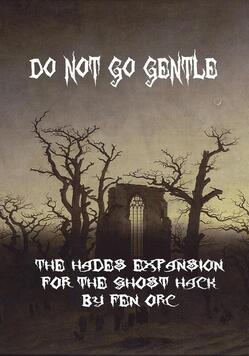
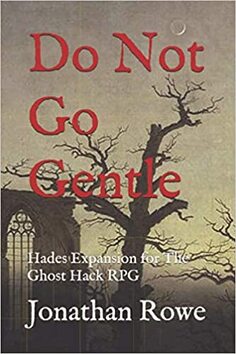
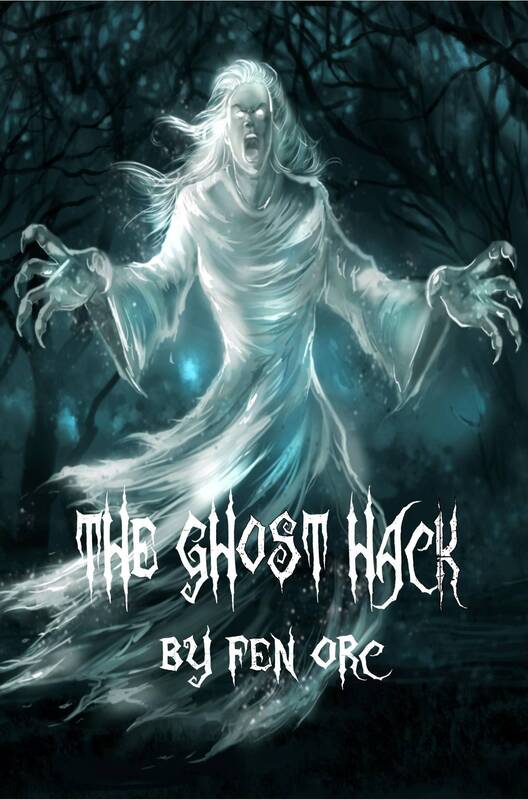
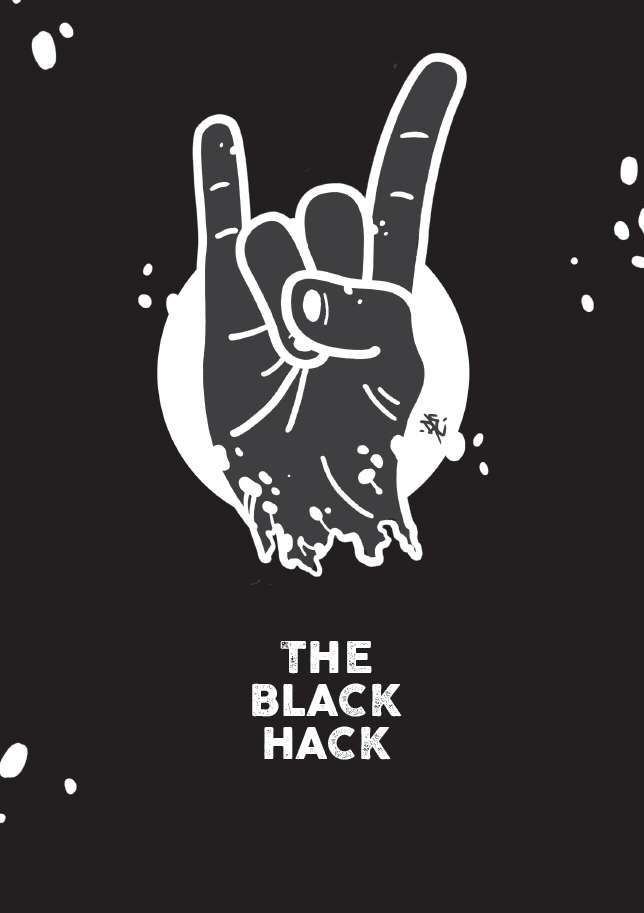
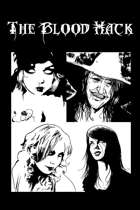
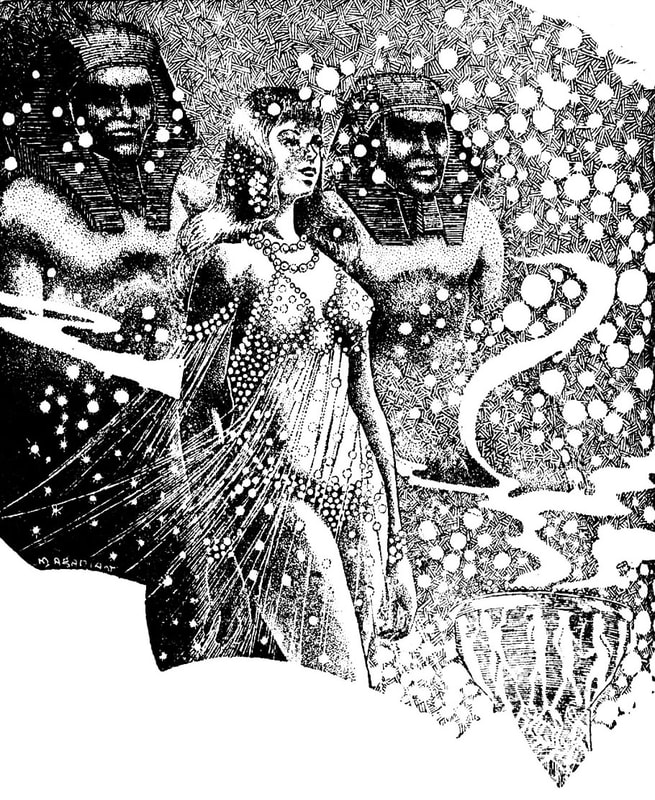
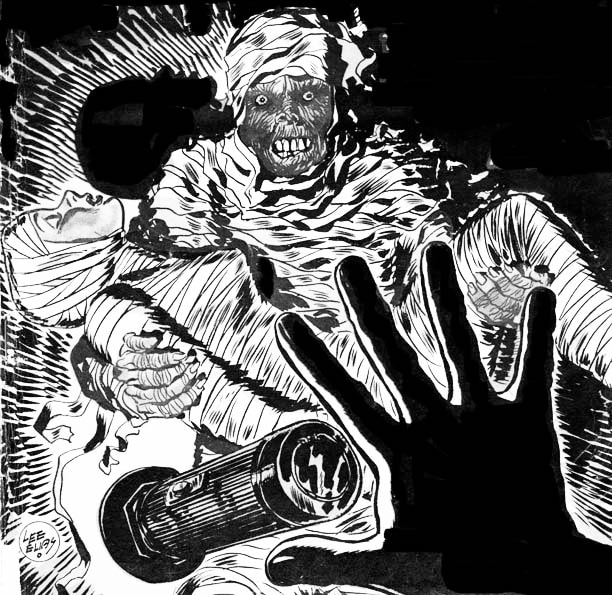
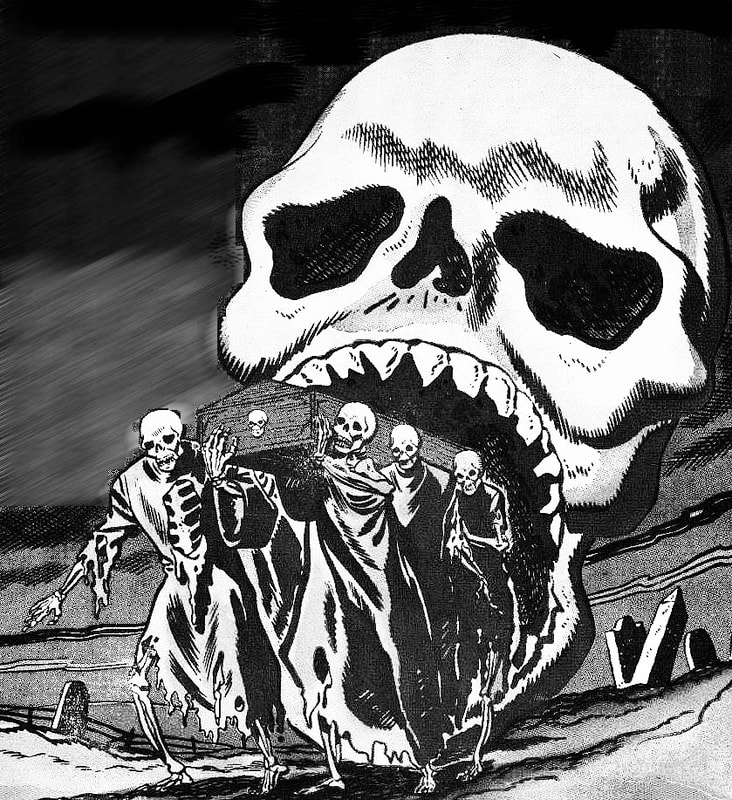


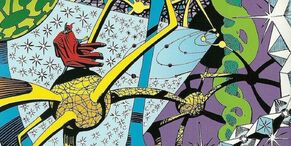
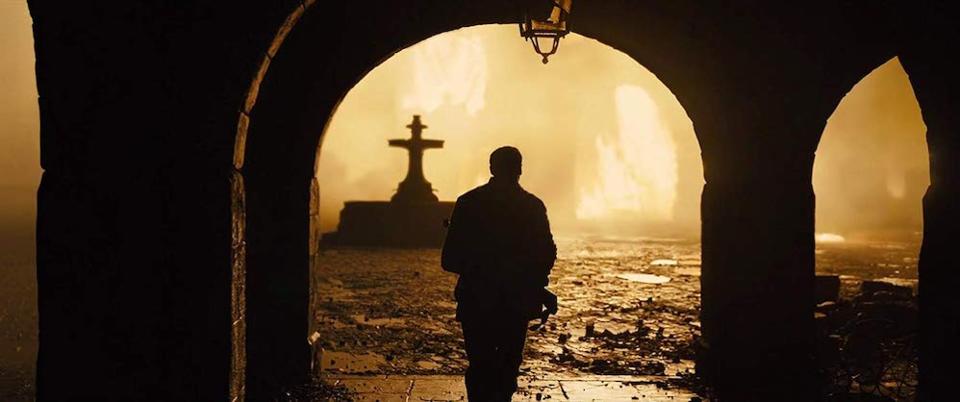

 RSS Feed
RSS Feed
